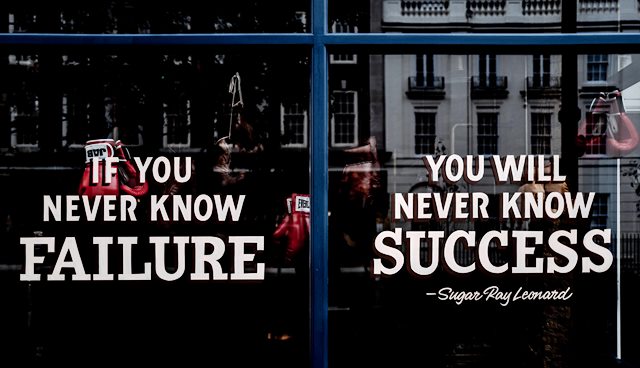To be brave is to take action in the face of fear.
Have you ever been so afraid of failing at something that you decided not to try it at all? Or has a fear of failure meant that, subconsciously, you undermined your own efforts to avoid the possibility of a larger failure?
The fear of failing can be immobilizing – it can cause us to do nothing or stop us taking effective action towards our goals. When we allow fear to stop our forward progress in life, we’re likely to miss some great opportunities along the way.
So how do you overcome it to enjoy true success in work, and in life?
Here’s a process for overcoming fear of failure that I learned from Scott Mautz, CEO of Profound Performance. Scott calls it the BRAVE process.
Be BRAVE
BRAVE is an acronym that stands for:
B is for burn the boats, when sea bound ancient Greek armies landed on enemy shores, they’d burn their boats before entering battle. This meant there was no turning back. Research shows that one of the most powerful ways to push past fear of failure is to take that first step, whether or not you have a plan. Fear of failure disappears when you realise you can’t hide behind it anymore, and there is no turning back.
R is for revisit your standards. Perhaps you’re holding back because you’re afraid of not meeting in an unreasonably high standard you’ve set for yourself. For example, perhaps you have an upcoming job interview and you haven’t started preparing yet. That’s because you’ve defined success as answering every possible question the interview panel could ask, perfectly, which is a lofty standard. As a result, you’re feeling overwhelmed. Establishing achievable, realistic, goals helps decrease fear of failure. I’m not suggesting you lower your standards, just avoid setting goals that are so lofty, you create a belief that you’ll never accomplish them.
A is for ask. Ask yourself what am I really afraid of? Often, we’re not actually afraid of failing at something. We’re afraid of feeling the shame associated with failing and shame is toxic because instead of feeling bad about your actions, which is guilt, or feeling bad about your efforts, which is regret, shame makes you feel bad about who you are. Recognise that failure in any activity, is nothing to be ashamed of. It means you’ve stepped out of your comfort zone and put yourself out into the world in a new way, which is admirable.
Also, ask yourself whether what you fear has a realistic chance of happening. We humans tend to overestimate teh likelihood and consequences of events. It pays to check in with yourself and ask, “Am I just imagining worst-case scenarios in my head?” If the answers “Yes” challenge those catastrophising thoughts. In some cases, the worst-case scenario may be genuinely disastrous, and it may be perfectly rational to fear failure. In other cases, however, this worst case may not be that bad, and recognizing this can help.
V is for validate your assumptions. The future is uncertain. Former US Secretary of Defense, Donald Rumsfeld famously said, “We also know there are known unknowns; that is to say we know there are some things we do not know.” Uncertainty often gets replaced in our minds with assumptions, which are often incorrect and unhelpful.
Identify the assumptions you’re making that are driving your fear of failure and challenge them. For example, using a job interview scenario again, perhaps you assume you’re going to perform badly in the interview, because your job experience to date won’t impress the interview panel. Well, that is an assumption worth challenging.
E is for examine past failures. You’ve experienced failure before and survived. You would have grown from having had that experience. Think of times when failure made you a little stronger, even if it was painful. What have you learned from those experiences? How have you become more resilient?
Do not underestimate your ability to bounce back. Here are some examples of people who did not let failure define them. Oprah Winfrey was fired from an early job as a television news anchor. Walt Disney was fired from an early job at a newspaper for lacking imagination! J. K. Rowling’s manuscript for Harry Potter was only accepted after twelve publishers denied it. Rowling says this about failure: “It is impossible to live without failing at something, unless you live so cautiously that you might as well not have lived at all – in which case, you fail by default.”
It’s almost impossible to go through life without experiencing some kind of failure but you don’t have to let fear of failure hold you back, be BRAVE. Failures stop us only if we let them. Be brave and take that first step. By moving forward slowly but steadily, you’ll begin to overcome your fear.
What Next?
Fears are one of the common problems I specialize in helping people overcome. If you have an area of your life where a fear of failure is holding you back and preventing you moving forward, call/text me today on 021 056 8389 or book a no obligation discovery consult where we can explore how I can help you.
Wishing you a fearless week!
Go well.
Tony
I’m on a mission to help as many people as possible enjoy lives free of unnecessary stress and anxiety. If you’d like my help, or you know someone who would benefit, call/text me today on 021 056 8389 or email tony@tycoaching.nz
